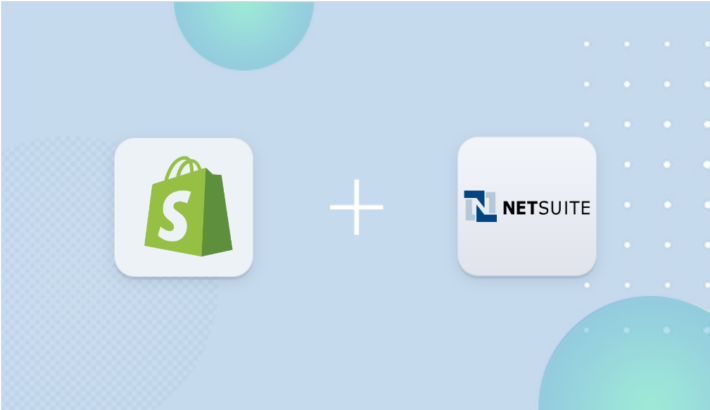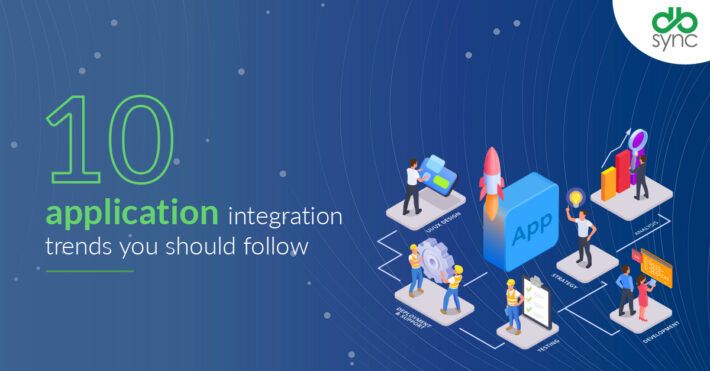9 NetSuite Benefits for Fast-growing Companies
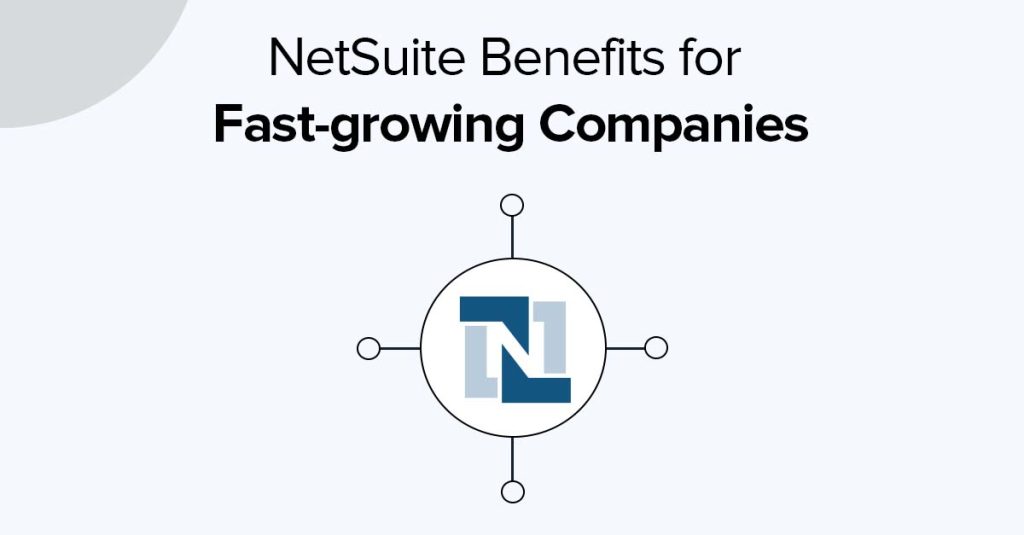
What is NetSuite – The Leading Cloud Solution
NetSuite, founded in 1999, is widely regarded as the first cloud computing software company. Nowadays, it is the leading full cloud software solution on the market, offering consolidated ERP, CRM, and e-commerce features.
As cloud-based software, it enables companies to manage essential business processes in a unified system. Thanks to its modular approach, it is highly efficient and cost-effective. It doesn’t involve hardware, upfront annual license fees, or maintenance fees, and it’s easy to set up.
These are only a few of NetSuite’s benefits for growing companies. In this article, we’ll explore the most important for accelerated growth.
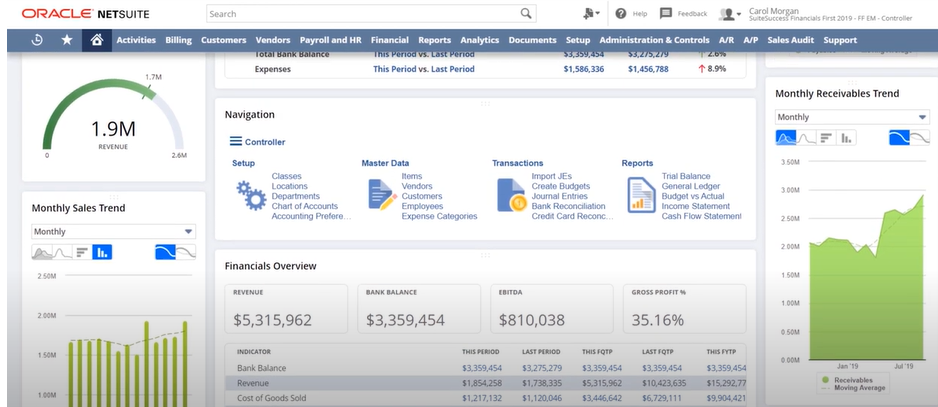
NetSuite is a cloud-based ERP (Enterprise Resource Planning) system that helps businesses automate processes and manage all their essential operations in one place. Imagine having your finances, human resources, customer relationships, inventory, orders, and even your e-commerce activities seamlessly integrated and accessible from anywhere— that’s what NetSuite offers.
Because it’s cloud-based, you and your team can access real-time data anytime, whether in the office or on the go. This makes it easier to stay organized, make informed decisions, and keep your business running smoothly. Whether a small startup or a growing company, NetSuite provides the flexibility and tools to streamline your processes and support your growth.
NetSuite unifies key business areas into a single platform. Its Finance module handles accounting, budgeting, and financial reporting. The HR module manages payroll, benefits, and employee performance. Supply Chain oversees inventory management, orders, and procurement. CRM streamlines customer interactions, sales tracking, and service. NetSuite boosts efficiency and supports your business’s growth by integrating these core functions.
NetSuite in a Nutshell
According to NetSuite, users can run their company’s entire organization from the moment the customer touches the organization through ordering, managing, delivering, invoicing, and accounting for the products. The whole business process is managed within a single system.
Who should use NetSuite?
NetSuite is ideal for small to mid-sized businesses looking to streamline operations and scale efficiently. Its cloud-based ERP system grows with your company, offering flexible solutions that adapt to your evolving needs. Whether you’re a startup aiming for rapid growth or a growing business needing robust tools, NetSuite provides the scalability and integrated functions to support your journey. Trusted by over 24,000 companies worldwide, NetSuite covers everything from managing finances and HR to supply chain and CRM systems.
NetSuite Features and Benefits
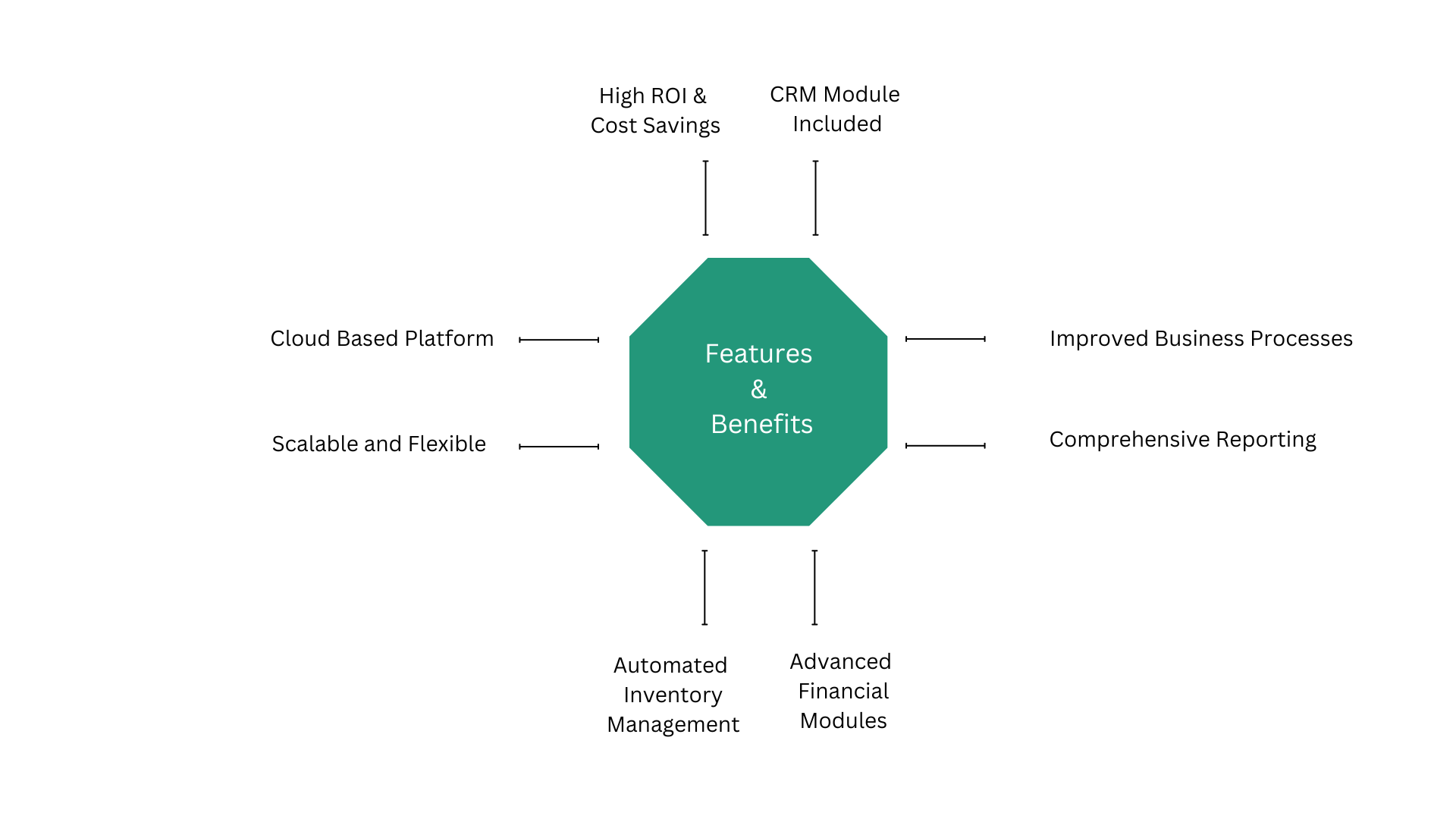
1. Richness of features
NetSuite is well-suited to different industries and company sizes. It provides rich functionalities for Manufacturing, Software, Wholesale Distribution, Professional Services, Nonprofits, and Retail/E-commerce companies out of the box—all included in a single ERP product.
2. Pricing approach
NetSuite’s modular approach is also worth mentioning. Essentially, it enables users to select and license only the modules they need, which empowers the user and reduces costs.
3. Ease of NetSuite Integration
One of the significant benefits of NetSuite is that it provides robust APIs that enable integration with other essential software applications. It can be done directly or through an integration platform (iPaaS). For example, one of the most popular integrations is Salesforce and NetSuite integration because many users want to continue using the Salesforce CRM system but also implement NetSuite ERP software in their businesses.
4. Improved visibility
Real-time visibility is crucial when it comes to making informed decisions. Data can be accessed instantly, and users don’t have to waste time extracting and tying data from various sources. This allows for more accurate and timely reports, translating into quicker decisions. Additionally, NetSuite pools data across the whole organization, as opposed to data silos, which leads to more powerful insights.
5. Speed-up growth
Having integrated software in place makes it possible to expand to multiple locations and establish new sales channels much faster. These are the benefits of unified order, accounting, warehouse management processes, and manual data entry.
6. Centralized information about your company
NetSuite offers a software system that covers your whole business. One single, integrated system translates into information flowing seamlessly throughout all departments. This way, employees avoid having to input data when sending reports to a different department manually. Manual input often leads to errors and inaccuracies in the information and time spent on low-value tasks.
7. Extending processes to the supply chain
Collaborating closely with customers, suppliers, and partners is a benefit of an extended organization. It is possible to offer self-service portals that improve B2B and B2C collaboration. NetSuite includes timely notifications about partner-specific events that help speed up process cycles and position you as a partner of choice.
8. Scalability
At some point, fast-growing companies may decide to go global. NetSuite can be easily scaled to that extent thanks to multiple currencies, languages, subsidiaries, and related business functions. If a company grows horizontally, it can add more users to the subscription rather than undergo an infrastructure change. And if it expands vertically into new business operations, additional modules can be added to the ERP system. The business can be assured that the system won’t limit their growth.
9. Customization and extension
NetSuite is regarded as the most customizable SaaS solution in the world. A high degree of customization is possible with NetSuite’s SuiteFlex, where the user can set up all the modular implementations with clicks rather than coding. Also, with the help of industry-specific modules, you can tailor the core business functions and processes to meet your company’s particular requirements.
An ERP System for Growing Companies
NetSuite works under a subscription model, which many small companies find appealing because they can pay per use only. This allows users to reduce initial investments, costs, and effort in maintaining the software.
Businesses can implement multiple systems using the standard software suite, which includes the core functionality for ERP and CMR. However, companies that require other specific, more advanced modules can license them on demand.
In general, companies can obtain modules specific to their industry or cherry-pick only the ones they need the most.
NetSuite Integration
*NetSuite users can integrate with other applications using an iPaaS solution like DBSync. This cloud platform also provides a highly customizable NetSuite connector that can connect your NetSuite account with many different applications, such as Salesforce, SkuVault, and MSCRM. It lets you connect your NetSuite account to several databases, such as Oracle, MySQL, and MSSQL. These apps can be on-premises or available as SaaS.
The NetSuite integration tool exposes all standard and custom objects available within the connected user’s NetSuite instance through the use of a trigger and one or more rules. The trigger defines the reading components, which are then related to the receiving apps via rules that contain mappings. These mappings are highly customizable and easily defined using a drag-and-drop mechanism.
Each NetSuite connector instance represents a single NetSuite account, including login credentials. If a user wishes to connect to multiple instances of either sandbox or production data, he can create a separate connection for each and configure each URL and login credentials accordingly.
Another nice feature of the DBSync platform is its online updater, which enables customers to automatically acquire all the product’s different features available in new releases.
Conclusion
In conclusion, NetSuite ERP offers businesses a powerful platform to streamline operations, enhance efficiency, and scale effortlessly. By integrating critical processes across various business functions like accounting, inventory management, and sales, businesses can reduce manual work, minimize errors, and make data-driven decisions for growth. Read our article on how Netsuite and Salesforce Middleware can unlock business potential. If you’re ready to simplify your business operations and unlock new opportunities for success, explore the NetSuite salesforce integration today or schedule a demo.
FAQs
What services does NetSuite provide?
NetSuite provides professional services automation, such as ERP (Enterprise Resource Planning), CRM (Customer Relationship Management), e-commerce, financial management, inventory management, and supply chain management, all designed to streamline business operations and improve efficiency.
What are the benefits of using NetSuite?
Using NetSuite offers several key benefits, including streamlined operations, improved efficiency, and real-time data visibility. It helps reduce manual tasks and errors while integrating financial, inventory, and sales processes. Additionally, NetSuite is highly scalable, making it suitable for growing businesses.
Is NetSuite the right ERP solution for small businesses, or is it only for large enterprises?
NetSuite is a flexible ERP solution suitable for small and large enterprises. While it’s robust enough to meet the complex needs of large companies, it also scales to support small businesses by offering efficient tools for streamlining operations, managing finances, and driving growth. Its cloud-based platform makes it accessible and adaptable for businesses of any size.
Can NetSuite support a global business with multi-currency and multi-language capabilities?
Yes, NetSuite supports global businesses with its multi-currency and multi-language capabilities. It allows companies to manage operations across different countries, handle transactions in multiple currencies, and provide localized experiences with language support, making it an ideal solution for international expansion and management.
How does NetSuite handle data backups and disaster recovery?
NetSuite provides robust data backups and disaster recovery through its secure, cloud-based infrastructure. It automatically performs regular data backups, ensuring data security and business continuity, and has disaster recovery protocols to protect against data loss, ensuring that critical business information remains safe and accessible.
How does the DBSync NetSuite connector integrate with other business systems like Salesforce or Shopify?
The DBSync NetSuite connector integrates with other business systems like Salesforce, Shopify, and ShipStation by automating data synchronization and workflows across platforms. It enables seamless sales orders, inventory updates, shipping, and customer data management processes. This integration reduces manual data entry, ensures real-time accuracy, and connects your e-commerce, shipping, customer relationship management CRM, and ERP systems, helping streamline business operations efficiently.
For more details, explore our ShipStation and NetSuite integration.
What support options are available for the DBSync NetSuite connector?
DBSync offers various support options for the NetSuite connector, including online documentation, video tutorials, and a knowledge base for self-service help. Additionally, users can access dedicated customer support via email, phone, or live chat for technical assistance. DBSync also provides professional services for more complex integration needs, ensuring that businesses have the support necessary to implement and maintain their integrations successfully.

